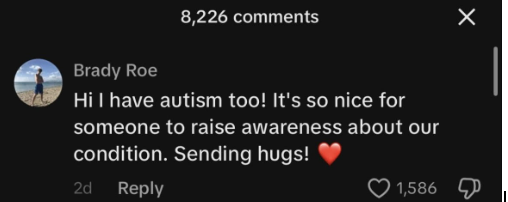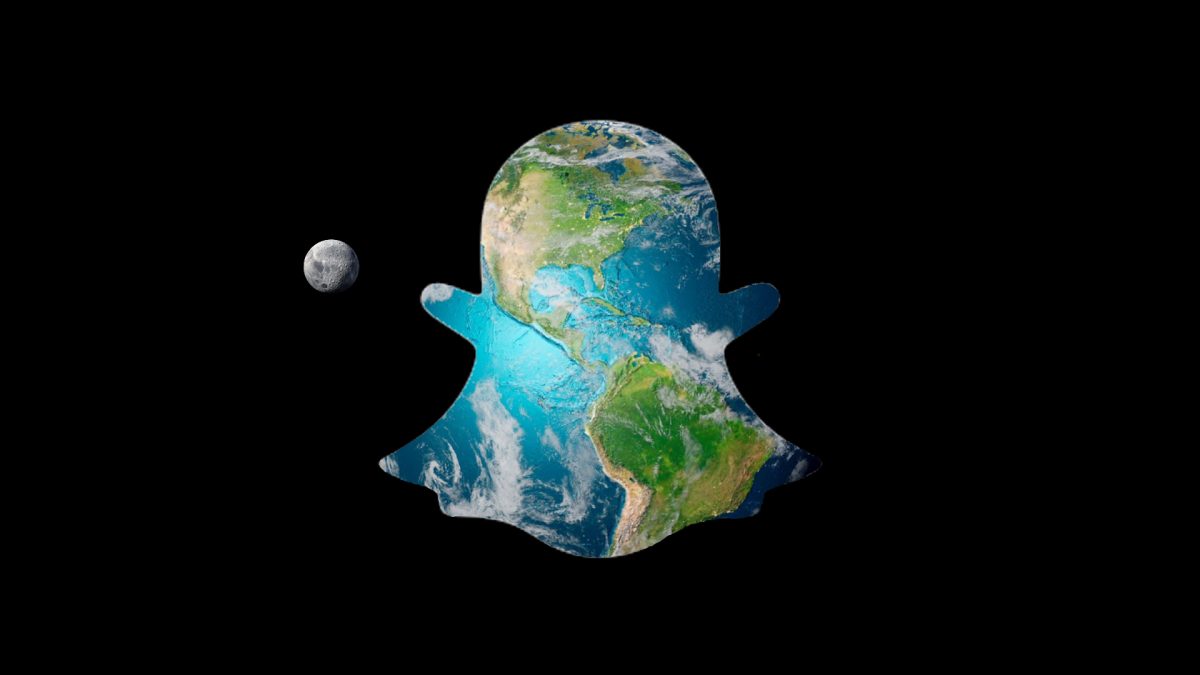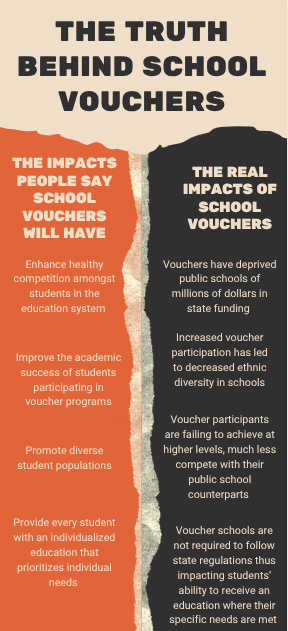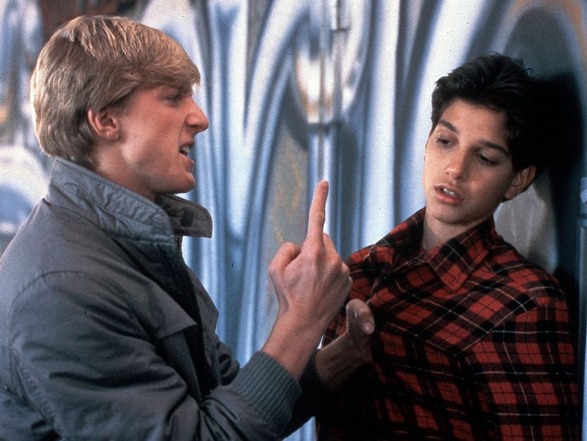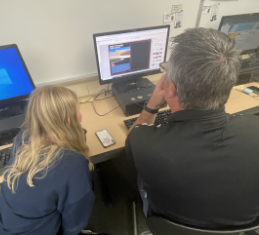Frosh. Lane Keller has just finished her biology assignment and decided to pull out her phone to play Block Blast.
Five minutes into the game, she can´t help but notice her tablemate watching a TikTok with the caption “POV: Trying to pack orders with Tourettes.”

In the video, a woman in her mid-twenties is obnoxiously yelling on purpose and twitching her neck, all while smirking and laughing at the camera.
Keller then sees her tablemate go to the comment section and type, ¨I feel so bad for you! Prayers.¨ The student then likes the video and shares the video with a friend.
Keller closes the game app on her phone and opens up Tik-Tok to see a video almost identical with the caption ¨POV: Your friend recently got diagnosed with Autism, so we decided to celebrate.”
As she looks around at her classmate’s phones she sees similar videos and then discovers a continuous problem, or as other people would call it, a ¨trend.¨ People faking mental disorders/disabilities for attention.
Illness appropriation
There can only be one culprit to blame for that phenomenon, and it´s the quirkification of mental illness. Most rational, healthy people who are self-aware understand that their mental disability/disorder is anything but short of quirky. As time goes on, oversharing on numerous social media platforms has resulted in a nauseating grab for unneeded attention.
Jr. Lucas Looman said, ¨faking a mental disability online takes away from how people can see the severity of students who have a disability.¨
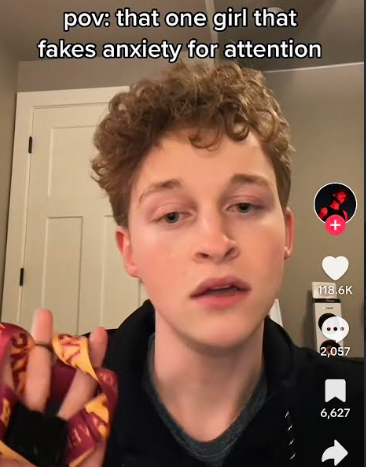
In reality, illness appropriation isn´t about bringing awareness to disorders/disabilities or advocating for representation. It is about narcissism and believing that getting attention is the best way for people on the internet to gain popularity and achieve fame.
¨It´s demoralizing to the people who have a disability that people are faking online and I believe that it takes away from how severe or mild a disability can be, it´s a way for people to receive attention and it makes a peer who has a mental disorder/disability feel less human.¨ said, Jr. Conner Reidy.
Not only does the trend reveal how thoroughly people have connected our perception of self with social media, but it inappropriately represents mental disorders and real issues that people struggle with because the definition of a mental disorder/disability is different for every individual.
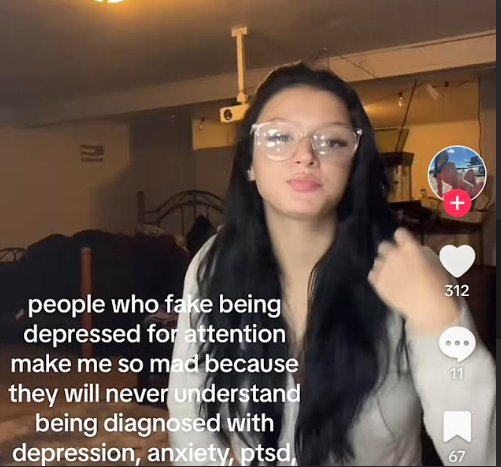
Instructor Shelby Mangan said, ¨when people are pretending to do it, things are much harder to decipher than when there is a real disability or disorder. It makes it more difficult for the kids who need help and are struggling and makes it hard for teachers and professionals to weed out whether it is a student with special needs or if it´ś a cry for attention.¨
Once that cry for attention reaches the public eye, it starts to get views, likes, and shares from an audience who should see the content as a serious issue, and less like something to feel sorry for.
While there are people online pretending to be diagnosed with ADHD, Autism, Tourette’s Syndrome, OCD, etc, there are students/people in and outside of WO who struggle with real disorders daily.
Soph. Aidan Miles-Duart said, ¨people who don’t have disabilities just want attention, and that the people who do have disabilities feel bad about themselves because they think they´re not good enough and that they don’t have pride. Still, they just need to believe in themselves.
Sr. Taly Ortiz Juarez said, ¨it makes them look desperate for attention, and I feel like for those who do have a disability it is very disrespectful and not nice and it makes people feel upset.¨
Inappropriate trends need to stop being encouraged. The issue lowers student’s self-esteem, it makes them feel as if they are being made fun of. Illness appropriation content should not be encouraged because it is insulting, disrespectful, and unkind by giving the audience an inaccurate representation of numerous mental disabilities/disorders.
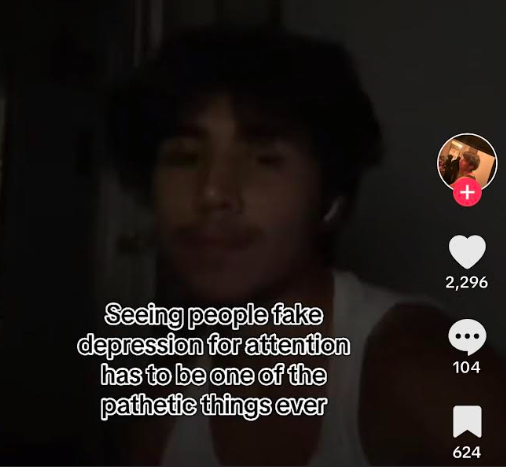
Students have seen pretty disgusting things on apps such as TikTok, Instagram, Facebook, and more. Illness appropriation is added to an ever-growing list of scams, dishonesty, and cons.
¨ When people are on the internet and pretending that they have a disability, I feel like it´s very disrespectful and uncool. It’s uncool to pretend to have something that many people have depending on if you were born/diagnosed.¨ explained, Sr. Emir Alic.
TikTok has the power to be an awesome and empowering tool that can connect people with actual disabilities. Butt it´s the fact that there are students who are self-diagnosing themselves with a mental disorder, posting about it, and collecting clout like infinity stones.
Pretending to be someone you´re not online has no value, no matter how many likes, views, shares, and comments a person receives.
When people realize the influence that the trend has acquired, it is inevitable to understand how much students set themselves back when it comes to discussing the topics of mental disorders/disabilities.
It’s not just the people making the content that are causing a continuous problem, it’s the people who watch it, which is why it needs to be stopped.

